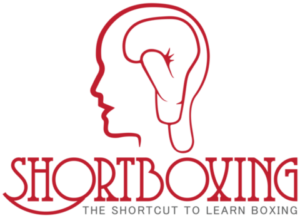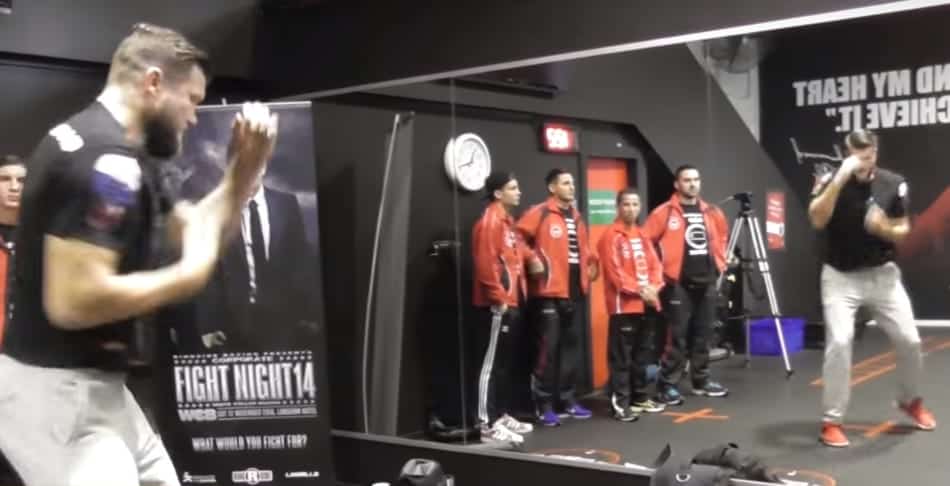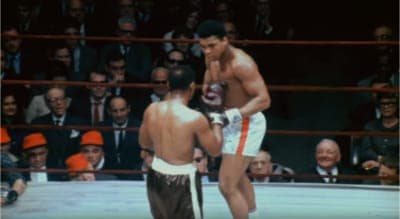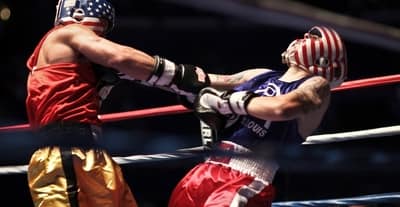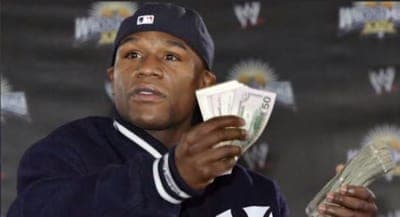Boxing is an extremely technical sport that requires the athlete to retrain their whole body and mind so does starting at 24 leave enough time to do so?
Is 24 too old to start boxing and become a successful professional? NO! 24 is still relatively young and depending on any previous training, current athletic condition, and determination you can become a very successful professional boxer.
There is always the factor of pure natural talent in boxing but a boxer willing to put in the hard work and one with determination will out-match a naturally talented lazy boxer any day. But one starts to wonder if things such as: previous experience (in another martial art) or training intelligently can play a role in becoming a successful professional.
The 5 factors that can make you a successful boxer
Anyone thinking about starting to box should just simply do it. Boxing is a wonderful sport that is challenging mentally and physically.
If you want to be a successful boxer when starting at 24 you have to think about some factors:
- Previous experience in another martial art
- Athleticism in general
- Determination
- Ability to learn quickly
- Training intelligently and finding the right trainer
It is also tremendously rewarding to those to box, no matter the levels of success they can reach. There are thousands of stories of people who started boxing late, fell in love, and continue to train late into life.
So if you are thinking about it, just do it! The boxing community welcomes any and all newcomers with open arms and a flurry of fists (in a good way).
But what will it take to become a successful professional late in life?
Previous Experience in another Martial Art
Previous experience in another martial art is definitely a plus when it comes to training as a boxer. However, learning the strategy of boxing and building muscle memory to react skillfully will remain the toughest challenges.
- Kickboxing experience may be the most obvious parallel to traditional boxing. The instinct for kicking will be tough to train out of your muscle memory but it can be done with persistence.
- Muay Thai is (really fun to watch) another highly competitive striking martial art with many athletes around the world, although the transition to boxing for someone with experience in Muay Thai may be a bit harder than a kickboxer.
- Any other striking martial art will give a traditional boxer an advantage if starting late. The experience, body composition, and strength in striking will translate easily to boxing.
- Grappling-based – What if your training is in a grappling-based martial art?This will be a tougher transition to boxing, but it can be done. The advantages a fighter trained in an art like wrestling or Brazilian jiu-jitsu are strength and mental approach.
- Wrestlers have tremendous strength which can translate relatively easily to power in boxing. However, there is a lot of technique in generating punching power such as how your feet are positioned and how you use momentum through your torso and shoulders to generate that power.
- Brazilian jiu-jitsu may be more about leverage than strength, but you can’t argue against the strength and athleticism of jiu-jitsu artists. Arguably a bit more so than wrestling, jiu-jitsu artists have an advantage when it comes to mentally approaching a fight and outsmarting your opponent.
Whatever your past training may be find what your strengths are, how they can be used to your advantage, and focus on developing your weaknesses specific to boxing.
Athleticism in General
Strength, physique, and conditioning are all critical to a boxer’s success and these are things that can be developed playing other sports like hockey, dancing, or weightlifting.
- A weightlifter will have natural strength and power which will need to be harnessed for boxing.
- A dancer may have tremendous footwork and conditioning but will need to develop the striking skills necessary to “dance” outside an opponent and jab at a distance.
- And a hockey player may have already participated in a few boxing matches and will have the strength and conditioning base from which train hard.
Get creative and find the skills that will translate well to boxing. If you can’t harness one of those skills in the ring, you at least have the strength and conditioning advantage to train long and hard.
Determination
How bad do you want it?
Are you willing to put in the early morning sparring sessions? Are you willing to run and exercise to achieve in peak condition? Will you keep training when your body is sore and get back up when you get knocked down?
Like I mentioned before, a boxer who puts in the hours and hard work will always outperform one that relies on natural talent alone. I sincerely hope you have natural talent because it will get you where you want to be much faster than if you didn’t but you will still go nowhere without the determination to get there.
Take Floyd Mayweather’s training routine and diet for example. It is difficult, focused and long. This is the level of determination any fighter needs in order to be successful.
Determination is arguably the most important factor in becoming a successful boxer.
Ability to Learn Quickly
Anyone new to boxing will need to train their muscle memory which takes time and focus. Your stance, how you hold your hands, and how to react properly and not think will be imperative to your success.
Learning new physical skills takes time and as long as you have determination you can get there. But this is just the basics so to continually grow every day, you will need the ability to learn rapidly.
Are you willing to jump in and likely fail over and over? Can you learn from your mistakes constantly and improve upon them? Are you focused on learning new strategies to adapt to your next opponent?
Learning from other fighters and doing some research on new techniques to beat certain opponents’ strengths is important. Observe and study other boxers you look up to and practice those skills that have made them successful.
Observe, take mental notes, and apply any learnings you can during your development.
Training Intelligently and Finding the Right Trainer
The right trainer may be tough to find so you will need to start talking to other boxers to find who they train with and respect.
A good trainer will always put your health and motivations over their own. You want to find someone who has experience training fighters and who will push you as hard as you can but not so far that you get injured.
Don’t get me wrong, you will need to jump into some challenges that will test the limits of your skills, but you don’t want to push so far that you put yourself at risk for serious injury.
Avoiding injury is the first goal of training intelligently. The other goals will tie into your ability to learn quickly.
Your training sessions should focus on technique by having controlled sparring sessions and pad work to build that the muscle memory necessary. Sparring is the best way to work on your weaknesses, improve your strengths, and find new strategies.
Sparring is the best way to improve:
- Boxing-specific muscular endurance
- Awareness and reaction dynamics
- Cardio conditioning
- Combat conditioning
- Mental conditioning
- Self-confidence, and more…
Just don’t put yourself in a situation you can get seriously hurt.
Examples of Professionals that Started Late
Most boxers do start young, but there are some who started very late and were able to find tremendous success.
- Nate Campbell didn’t step into a boxing gym until he was 24. He made his professional debut at 28 on February 5, 2000, and went on to win multiple titles in the super featherweight and lightweight divisions. His professional record was 37-11-1.
- Tony Thompson didn’t start boxing until he was 27. He made his professional debut at 28 on January 27, 2000, and went on to tally a record of 40-7 with two bouts against famed heavyweight Wladimir Klitschko, both of which Tony lost.
Conclusion
If you are thinking about boxing, simply do it. Don’t let your age get in the way.
If you want to reach the peak of success as a professional, you will need determination and hard work to get there faster than most. You will succeed if you can adapt any current skills you have to box, train intelligently, and learn constantly.
